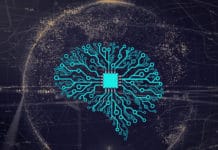A new program designed for middle school students plans to help them comprehend AI. MIT staff have piloted at this year’s Massachusetts STEM Week, instructs pupils how AI systems were created, how they may be employed to influence the general public — and how to utilize them to become prosperous in projects later on.
“Preparing students for the future means having them engage in technology through hands-on activities. We provide students with tools and conceptual frameworks where we want them to engage with our materials as conscientious designers of AI-enabled technologies,” Breazeal says. “As they think through designing a solution to address a problem in their community, we get them to think critically about the ethical implications of the technology.”
Three decades before, the Personal Robots Group started a program around instructing AI theories to preschoolers. This endeavor then broadened into learning experiences for more kids, and the team developed a program geared toward middle school students. Last week, an AI program was shared with educators and co-workers in Somerville, Massachusetts, to ascertain which actions resonated for classrooms.
“We want to make a curriculum in which middle-schoolers can build and use AI — and, more importantly, we want them to take into account the societal impact of any technology,” says Williams.
This program, How to Train Your Robot, was initially piloted in an i2 summer camp at Boston prior to being introduced to teachers in local colleges throughout Mass STEM Week. The program conducted in three colleges around six classrooms.
Pupils participated in talks and innovative actions, designing robot companies and utilizing machine learning how to fix real-world issues they’ve observed. At the close of the week, pupils share their creations with their communities.
“AI is an area that is becoming increasingly important in people’s lives,” says Ethan Berman, founder of i2 Learning and MIT parent. “This curriculum is very relevant to both students and teachers. Beyond just being a class on technology, it focuses on what it means to be a global citizen.”
The innovative endeavors provided opportunities for pupils to consider issues from an assortment of angles, such as considering issues of prejudice beforehand, before a system was created. By way of instance, for a single project that concentrated on sign language, the pupil trained her pursuit for comprehension sign language about pupils of a large assortment of skin tones, and integrated adults, also — contemplating potential algorithmic prejudice to inform the design of their machine.
“We hope students walk away with a different understanding of AI and how it works in the world,” says Williams, “and that they feel empowered to play an important role in shaping the technology.”











